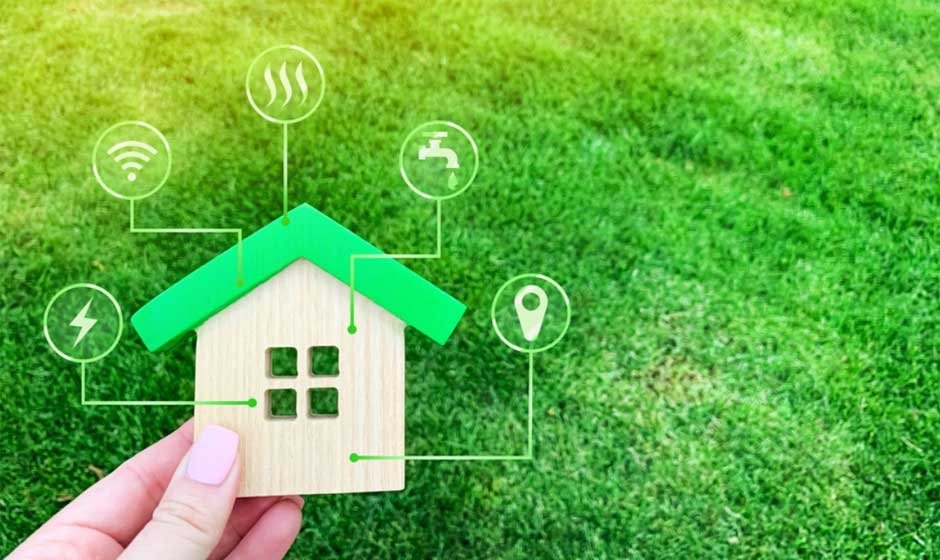You’re probably wondering how eco-friendly services can enhance your home and make a noticeable difference. By integrating solar power and optimizing energy efficiency, you not only cut down on utility bills but also reduce your carbon footprint. Imagine the impact of water-saving solutions and sustainable materials on your daily life. They promise improved indoor air quality and smarter waste management, creating a healthier living space. But how exactly do these changes support local economies and bring tech-savvy solutions into your home? There’s more to explore about creating a sustainable haven that’s both functional and environmentally conscious.
Embrace Solar Power
Harnessing the sun’s energy is a powerful way to make your home more sustainable. By embracing solar power, you can considerably reduce your carbon footprint and decrease your reliance on non-renewable energy sources.
Installing solar panels on your roof might seem like a challenging task, but it’s an investment that pays off over time. You’ll generate clean energy and potentially lower your electricity bills, depending on your location and energy usage.
Start by evaluating your home’s solar potential. Consider factors like roof orientation, shading from trees or other buildings, and local climate conditions.
You’ll want to verify your roof is in good condition before installation, as solar panels are designed to last for decades. Once you’re set, consult with a reputable solar provider to understand your options.
They can help you choose the right-sized system and explain available incentives or tax credits to offset initial costs.
Optimize Energy Efficiency
While you’ve taken a considerable step towards sustainability by considering solar power, it’s equally important to optimize your home’s overall energy efficiency.
Start by sealing any drafts around doors and windows. You’d be surprised how much energy leaks through tiny gaps, making your heating and cooling systems work overtime. Use weatherstripping or caulk to close these gaps, ensuring your home maintains a consistent temperature year-round.
Next, assess your insulation. Proper insulation in your attic, walls, and floors can greatly reduce energy consumption. If your insulation is lacking, consider eco-friendly options like cellulose or recycled cotton. These materials not only save energy but also minimize your environmental footprint.
Switching to LED lighting is another simple yet effective strategy. LEDs use considerably less energy than traditional bulbs and last much longer, which means fewer replacements and less waste.
Don’t forget about energy-efficient appliances, too. Look for the ENERGY STAR label when purchasing refrigerators, washers, or dishwashers. These appliances use less energy and water, lowering your utility bills.
Implement Water-Saving Solutions
Efficiency is the foundation of water conservation in your home. By implementing water-saving solutions, you not only reduce your utility bills but also contribute to a more sustainable environment.
Start with low-flow fixtures. Installing low-flow showerheads and faucets can greatly cut down on water usage without sacrificing performance. These fixtures mix air with water, providing the same pressure while using less water.
Toilets are another area where you can make a big impact. Consider switching to dual-flush toilets. They offer two flush options, using less water for liquid waste and more for solid waste, thereby optimizing water use.
Fixing leaks is essential. A dripping faucet or a running toilet can waste gallons of water daily. Regularly check for leaks and repair them promptly.
Collecting rainwater is a fantastic way to utilize natural resources. Set up a rain barrel to capture runoff from your roof, and use it to water your garden or wash your car.
Choose Sustainable Materials
Opting for sustainable materials in your home not only benefits the environment but also enhances the quality and durability of your living space. By choosing materials like bamboo, reclaimed wood, or recycled metal, you reduce the demand for new resources and help decrease landfill waste.
These materials are often more durable than conventional options, meaning your home will require fewer repairs and replacements over time.
Start by considering bamboo for your flooring or cabinetry. It’s a fast-growing grass that regenerates quickly, making it a highly renewable resource.
Reclaimed wood is another excellent choice, offering a unique character and history to your furniture or flooring while minimizing the need for new timber.
When it comes to metal fixtures, recycled metal options can provide the same strength and aesthetic appeal without the environmental impact of newly mined materials.
Additionally, look for materials with certifications such as FSC (Forest Stewardship Council) or Cradle to Cradle, which guarantees they meet strict environmental and social standards.
You can find out more on our website: https://ecoprohomeservices.ca/
Improve Indoor Air Quality
Your home’s indoor air quality plays an essential role in your health and well-being. Breathing cleaner air can reduce allergies, improve sleep, and boost overall comfort.
One effective way to enhance air quality is by integrating eco-friendly services and practices into your living space. Start by installing air purifiers with HEPA filters, which effectively capture dust, pollen, and other airborne particles. These purifiers can notably reduce indoor pollutants, making the air you breathe much healthier.
Another smart move is to incorporate more plants into your home. Certain houseplants like spider plants, peace lilies, and snake plants naturally filter toxins from the air. They not only beautify your space but also contribute to cleaner, fresher air.
Regular maintenance of your HVAC system is vital too. Clean air ducts and replace filters routinely to prevent the buildup of pollutants.
Investing in eco-friendly cleaning products can also make a big difference. Many traditional cleaners release harsh chemicals into the air, but green alternatives are non-toxic and just as effective.
Enhance Waste Management
Cutting down on household waste can considerably contribute to a more sustainable lifestyle. By enhancing waste management in your home, you not only reduce your carbon footprint but also create a cleaner, more organized living space.
Start by evaluating the types of waste you generate. Identify materials that can be recycled, composted, or reused. Setting up a simple recycling system with clearly labeled bins can make sorting waste more straightforward for everyone in your household.
Consider composting organic waste like fruit peels and vegetable scraps. You’ll be surprised how much of your trash can be turned into nutrient-rich compost for your garden.
If you don’t have a garden, local community gardens or composting programs often welcome additional resources.
Another step is to be mindful of packaging when shopping. Choose products with minimal or recyclable packaging. You can also switch to reusable items such as cloth bags, glass containers, and metal straws to cut down on single-use plastics.
Lastly, use eco-friendly services that offer waste audits and pickup services to guarantee responsible disposal. These services can guide you in adopting better waste management practices, making your home greener and more efficient.
Utilize Smart Home Technology
In addition to optimizing waste management, embracing smart home technology can further enhance your eco-friendly lifestyle. By integrating smart devices, you can greatly reduce energy consumption.
Start with smart thermostats, which learn your habits and adjust the temperature accordingly, guaranteeing efficient heating and cooling. They help cut down on unnecessary energy use, saving both money and the environment.
Smart lighting systems are another excellent addition. They allow you to control lights remotely, set schedules, and use motion sensors to make sure lights are only on when needed. This reduces electricity usage, contributing to lower energy bills and a smaller carbon footprint.
Consider installing smart plugs to manage power consumption. These devices can turn off appliances when not in use, eliminating standby power waste. You’ll find this particularly useful for electronics that continue drawing power even when turned off.
Water conservation can also benefit from smart technology. Smart sprinklers adjust watering schedules based on weather forecasts and soil conditions, making certain your garden stays green without wasting water.
Support Local Eco-Friendly Services
Many people overlook the benefits of supporting local eco-friendly services, but doing so can greatly reduce your carbon footprint. When you choose to work with these services, you’re not just benefiting the environment; you’re also strengthening your community.
Local eco-friendly businesses often use sustainable practices that larger companies might ignore. By supporting them, you’re encouraging more eco-conscious decisions within your area.
Opt for local services like organic gardening, sustainable cleaning, and energy-efficient home repairs. These businesses frequently source materials locally, reducing emissions from transportation. Plus, they’re more likely to have a personal stake in the community, ensuring they do the best job possible.
You’ll find that many of these services are surprisingly affordable, and the long-term savings from reduced energy and resource usage can be significant.
Consider the impact of your choices:
- Nurture your community: Every dollar spent locally contributes to a thriving local economy.
- Preserve the environment: Sustainable practices protect natural resources for future generations.
- Create jobs: Supporting local businesses leads to more employment opportunities.
- Reduce waste: Many eco-friendly services focus on minimizing waste production.
- Feel good: Knowing you’re making a difference brings a sense of fulfillment.
Conclusion
By embracing eco-friendly services, you’re not just upgrading your home; you’re making a positive impact on the environment. Opt for solar power, optimize energy efficiency, and implement water-saving solutions to reduce your carbon footprint. Choose sustainable materials and improve indoor air quality for a healthier living space. Enhance waste management and utilize smart home technology for efficient living. Supporting local eco-friendly services also boosts your community’s economy. Start today, and make a difference for tomorrow.










